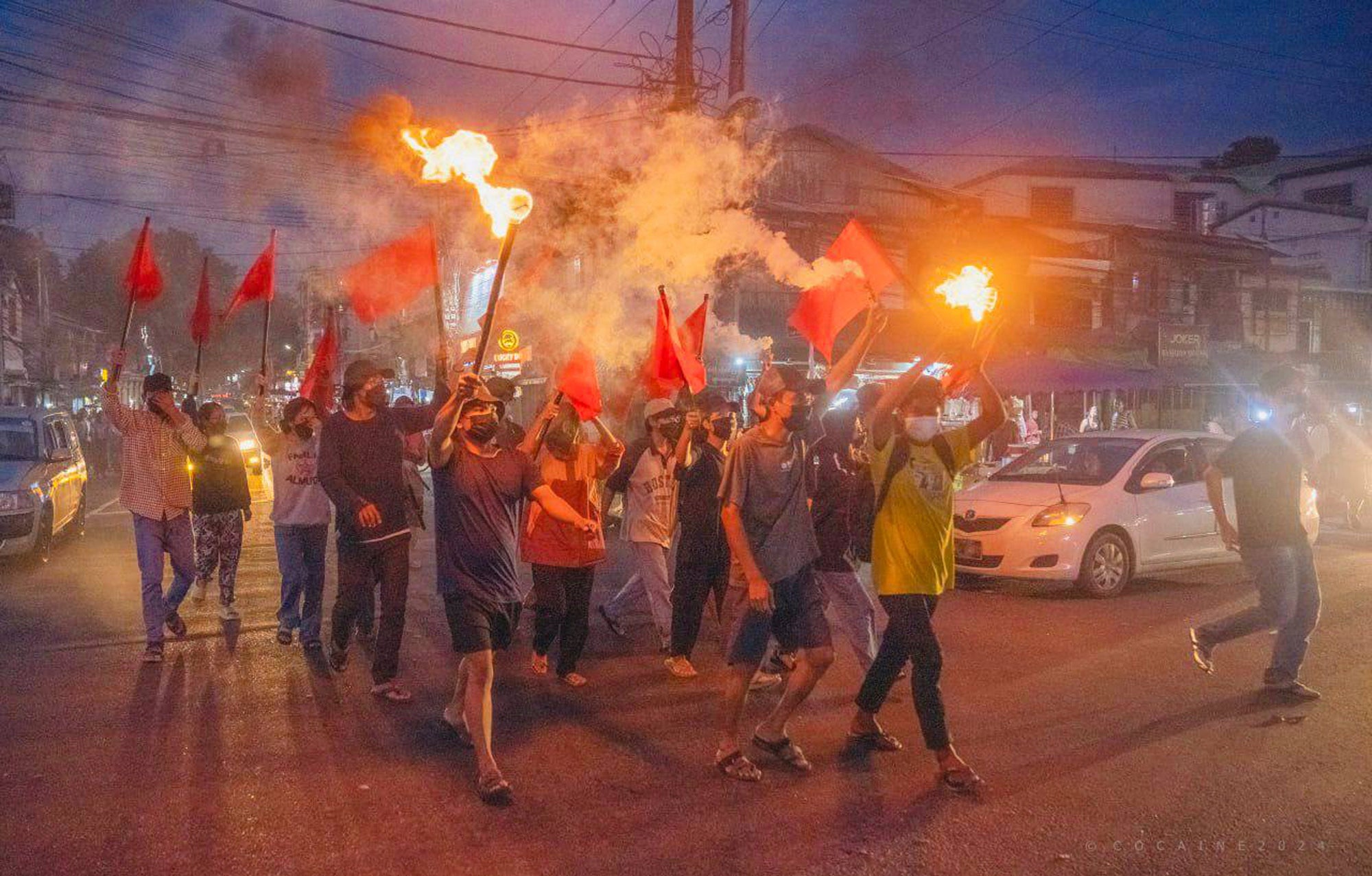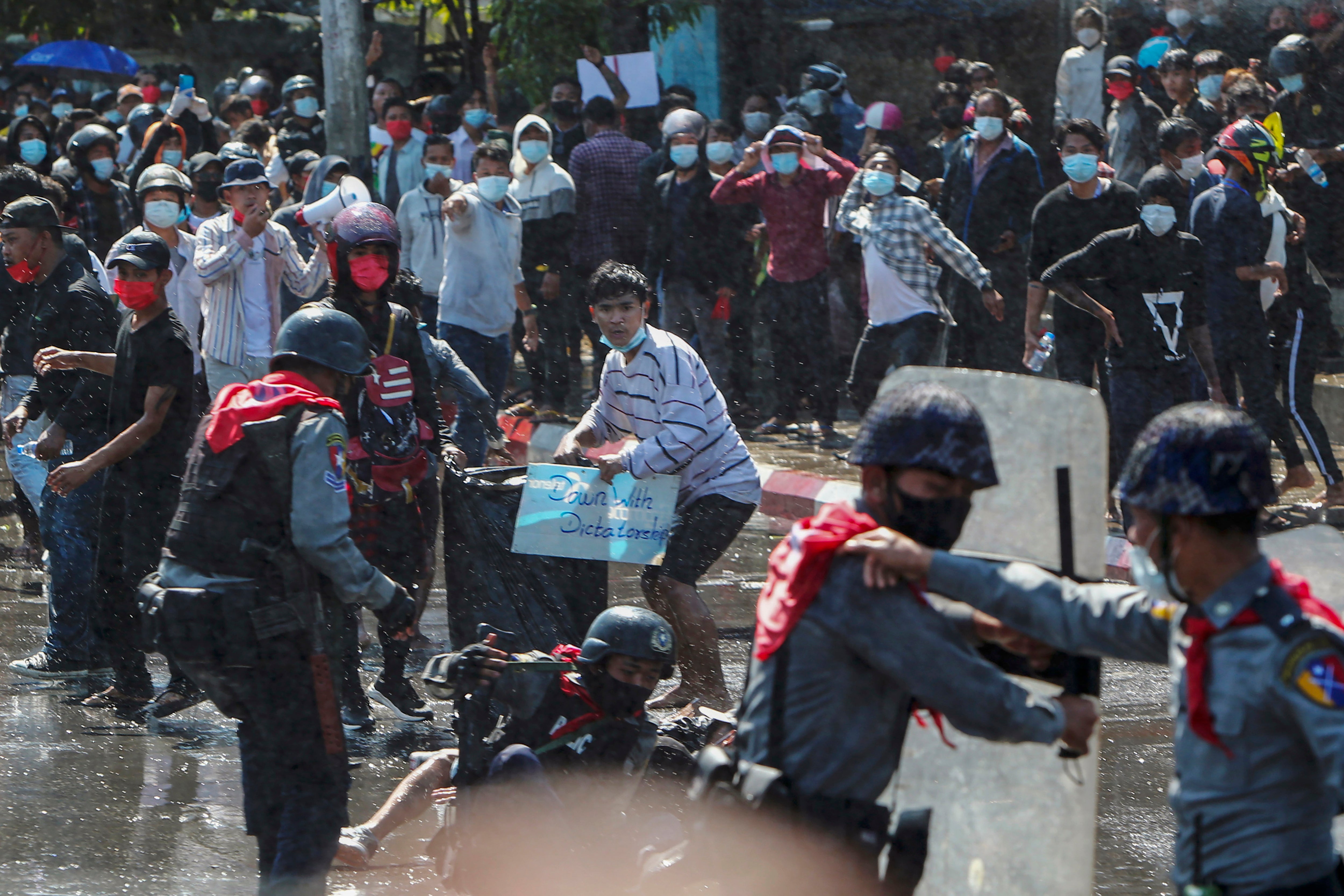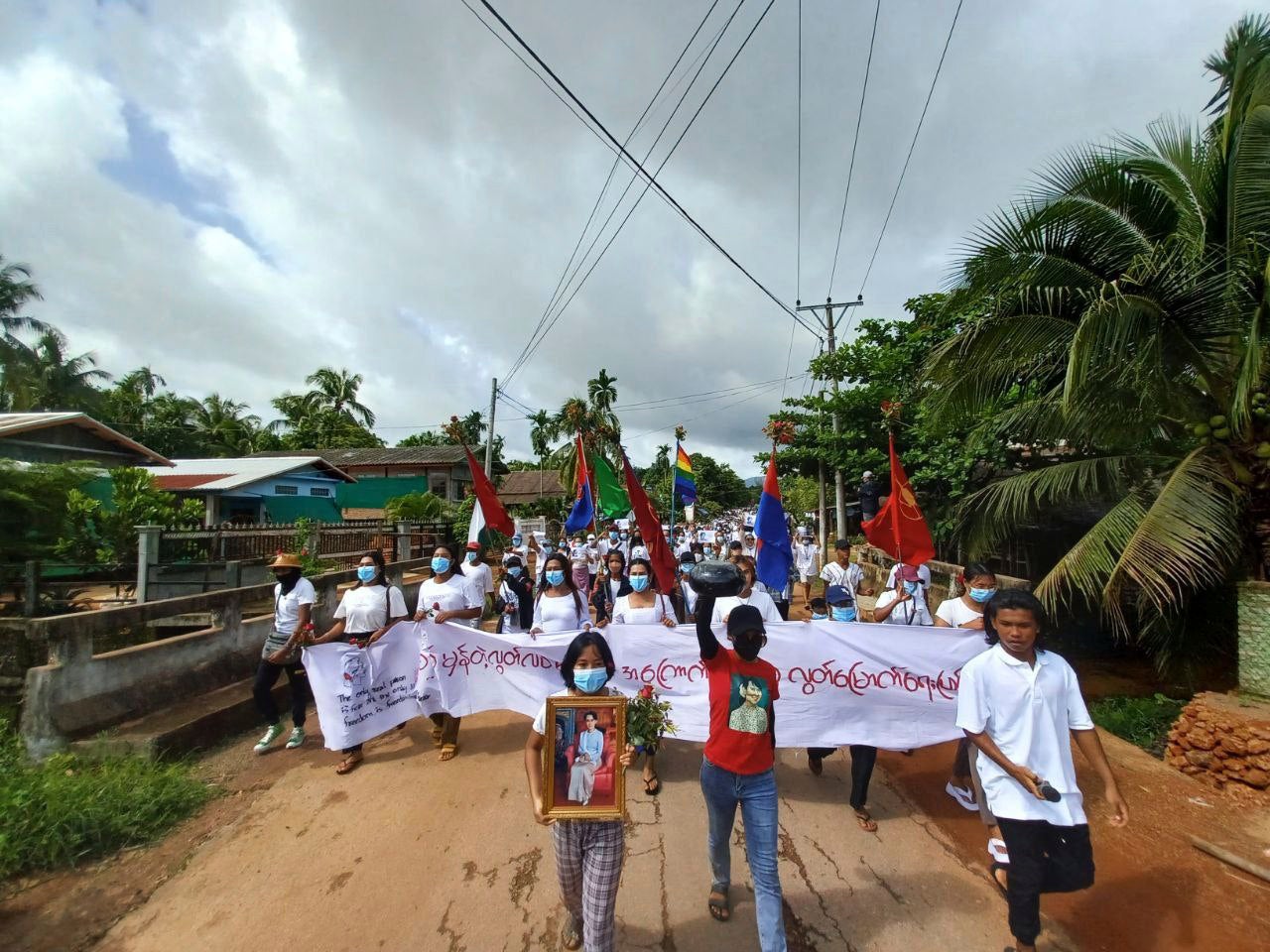Life in Myanmar today: ‘My brother’s legs were slashed with knives for liking a Facebook post’
Maung Maung writes from inside Myanmar about how he left his profession, his life, everything to escape the claws of the junta after they ousted Aung San Suu Kyi
Your support helps us to tell the story
From reproductive rights to climate change to Big Tech, The Independent is on the ground when the story is developing. Whether it's investigating the financials of Elon Musk's pro-Trump PAC or producing our latest documentary, 'The A Word', which shines a light on the American women fighting for reproductive rights, we know how important it is to parse out the facts from the messaging.
At such a critical moment in US history, we need reporters on the ground. Your donation allows us to keep sending journalists to speak to both sides of the story.
The Independent is trusted by Americans across the entire political spectrum. And unlike many other quality news outlets, we choose not to lock Americans out of our reporting and analysis with paywalls. We believe quality journalism should be available to everyone, paid for by those who can afford it.
Your support makes all the difference.I was working as a journalist in Yangon, Myanmar’s biggest city, when the military seized power. That was on February 1, 2021, and everything changed overnight.
Only three months before, the landslide victory of Aung San Suu Kyi’s National League for Democracy party in the general election had filled people with joy. Now we were plunged into terrifying darkness.
Across the country, millions took to the streets in peaceful protest against the coup, but the military cracked down on them brutally. Thousands were killed, and tens of thousands imprisoned.
A nationwide curfew was imposed, house-to-house searches were conducted, and anyone deemed suspicious was arrested. Social media use was also tightly restricted. Many died from torture under interrogation.
Watch: Cancelled: The rise and fall of Aung San Suu Kyi Documentary on Independent TV
To suppress the free flow of information the military targeted journalists, and my profession became deadly dangerous. Between February 2021 and August 2024, 172 Myanmar journalists were detained, 28 of them women. Hundreds of my colleagues fled across the border to Thailand to escape the military’s dragnet.

Many of those who stayed were targeted. One friend of mine, a well-known journalist, was arrested and physically and mentally tortured for three months in prison.
An online news editor, one of my colleagues who had in years past worked as a fixer for foreign reporters, was sentenced to seven years’ jail for the crime of having a photo of Aung San Suu Kyi on his mobile phone.
People who were released told me he had been tortured and kept in solitary confinement for months in a dark, cramped cell in Yangon’s notorious Insein Prison. He is still there to this day.
One of my three brothers was arrested for liking and sharing an anti-junta post on Facebook. During the interrogation his calves were slashed with knives and scalding water was poured over the wounds, causing him to pass out.
When he came to the next morning, the soldiers dragged him outside, tied him down and left him lying under the scorching sun till he passed out again. When he woke the second time, he found himself in a truck heading for Insein Prison.
His wife paid a large bribe to a prison officer to ensure he received proper medical treatment in jail. After eight months he was released due to lack of evidence, but the conditions in prison left him in poor health. He was lucky to survive.

Against this backdrop, before the year was out I quit my job as a journalist, left Yangon and moved to a small town in southern Shan state in the north-east, my wife’s hometown, having first wiped all photos, data, and emails from my mobile phone and laptop.
In early 2022, at the request of a friend in the town, I became a volunteer in the distribution of aid for war refugees in Kayah State, the mountainous state on the east of Burma which has been fighting for independence for many years.
With covert support from domestic and international donors, we discreetly purchased as much rice as we could from local farmers, loaded the sacks onto trucks and transported them after dark into Kayah State by mountain roads, bribing soldiers at the military checkpoints along the way with whisky and cash.
But in the summer of 2023 the fightback of people all over Myanmar against the military intensified: battles erupted along the Kayah border, the military retaliated with airstrikes, and we were forced to change our delivery routes.
Later, with the civil war spreading into the centre of the country, local residents were driven from their homes and soon we could no longer buy rice. The conflict has severely disrupted farming in both highland and lowland areas. In addition, fuel shortages have caused transport costs to skyrocket.

UN agencies and other international organizations based in Yangon have been unable to provide effective aid to the suffering Myanmar population because the military council bars them from working in conflict zones.
Local organisations have also been forced to halt their aid efforts, lacking official permits. Only small groups like ours continue to provide covert assistance at great risk, but as conflict areas expand with internal refugees now numbering in the millions, aid operations become overwhelmingly difficult.
This is part of the country’s larger economic crisis. Many factories have closed due to the withdrawal of foreign investment, leaving workers unemployed; young people flee the country en masse to avoid conscription; while in Yangon, food has become so expensive that working-class families struggle to afford one meal a day.
Yangon, has become unrecognizable. On the outskirts, soldiers raid homes, searching for and seizing young people and forcing them to join the military.
Near the centre most of the hotels have closed, and although a few night clubs and bars catering for the elite are crowded until dawn, all city restaurants close early in the evening, well before the midnight curfew.
The civil war reaches right into the city: sometimes you can hear gunfire and bomb blasts from hit-and-run guerilla attacks. Further out in the beautiful countryside only old people and children are to be seen: all the young people have fled abroad.
Four years might feel like a short time for people living in peace, freedom, and happiness. But for those trapped in terrifying misery, they are excruciatingly long.
My life spent under the ever-growing shadow of military dictatorship becomes darker with each passing day. Right now, my deepest desire is simply to own peaceful days where I can look up at a clear blue sky and breathe freely, without fear.
No one can say when such days will return for us, the people of Myanmar.

Join our commenting forum
Join thought-provoking conversations, follow other Independent readers and see their replies
Comments